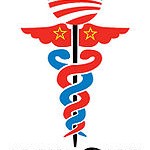The U.S. Supreme Court ruled on June 28, 2012, that President Obama’s health care law is constitutional. The main issue before the Court was whether or not the government could force individuals to purchase health insurance. Chief Justice John Roberts said the insurance mandate could survive as a tax. “Nothing in the Constitution guarantees that individuals may avoid taxation by inactivity,” Roberts said from the bench.
Individual mandate.Beginning January 2014, non-exempt U.S. citizens and legal residents are required to have health insurance. Individuals who fail to maintain minimum essential coverage are subject to the following penalty.
| Year | The penalty is the greater of: | Or the following percent of excess household income over the threshold amount: |
| 2014 | $ 95 | 1.0% |
| 2015 | $ 325 | 2.0% |
| 2016 and after | $ 695* | 2.5% |
* Indexed for inflation after 2016.
The threshold amount is the amount of income required to file an income tax return under IRC section 6012(a)(1). For example, in 2012, the filing threshold is $9,750 for a single person and $19,500 for a married couple filing jointly. Individuals with income below the filing threshold are exempt from the penalty.
In the ruling, the Court said: “The most straightforward reading of the individual mandate is that it commands individuals to purchase insurance. But, for the reasons explained, the Commerce Clause does not give Congress that power. It is therefore necessary to turn to the Government’s alternative argument: that the mandate may be upheld as within Congress’ power to lay and collect taxes.”
“In pressing its taxing power argument, the Government asks the Court to view the mandate as imposing a tax on those who do not buy that product. Because every reasonable construction must be resorted to, in order to save a statute from unconstitutionality, the question is whether it is fairly possible to interpret the mandate as imposing such a tax.”
“The Affordable Care Act describes the shared responsibility payment as a penalty, not a tax. That label is fatal to the application of the Anti-Injunction Act. It does not, however, control whether an exaction is within Congress’ power to tax. In answering that constitutional question, this Court follows a functional approach, disregarding the designation of the exaction, and viewing its substance and application.”

